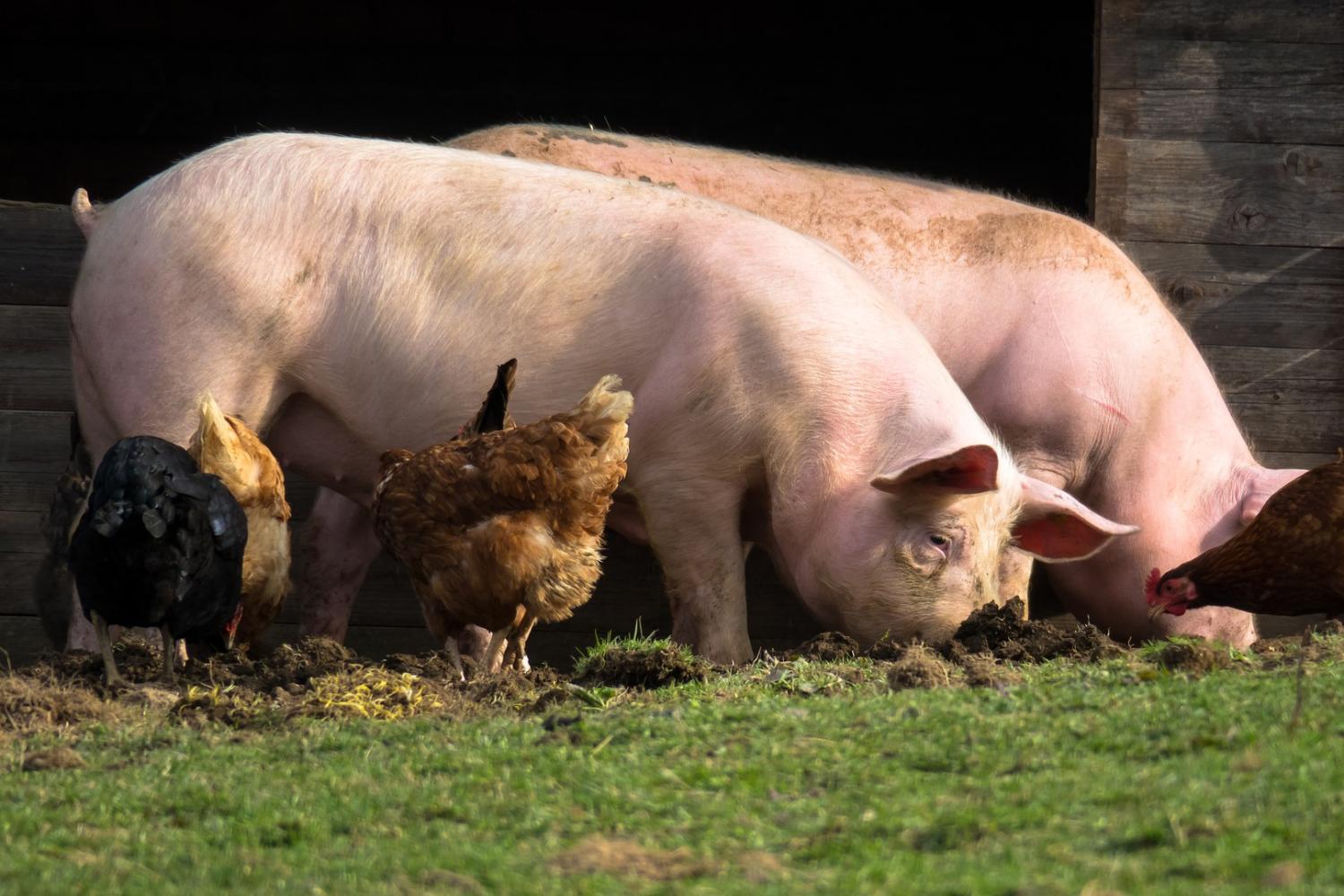
Niman Ranch is known for its sustainable and humane practices. The network of 740 independent family livestock farms and ranches is 100 percent third-party Certified Humane and has led industry change for years.
“I want to see sustainable farming practices and the humane treatment of animals," founder Paul Willis told Food Tank. "Moving that direction is something that is inspiring.”
It may come as a surprise that a company with such a strong and tested mission is owned by poultry giant Perdue Farms. The companies merged in September 2015, and despite some criticism, the partnership is proving a success in many ways.
New relationships drive positive change at Perdue
Skeptics weren’t coming out of left field. Unlike Niman Ranch, Perdue does not have a long history of humane animal husbandry. The fourth largest chicken producer in the U.S., Perdue has a troubled reputation when it comes to how it has treated its stock.
In Jim Perdue’s own words, “We had been focused more, as a traditional poultry company, on the end products that you see on the market, not so much on what’s happening on the farm, not so much on the farmers.” The Chairman of Perdue and Willis shared the growth this merger has offered both brands during the 2019 Food Tank Summit in New York.
Until recently, Perdue company policy required farms to breed and raise their chickens using methods many have called abusive, unnatural and objectively unhealthy. Finally, in 2016—half a year after acquiring Niman Ranch—the company presented an animal welfare policy that promised to guarantee certain freedoms for Perdue chickens, amongst which are “freedom from hunger and thirst” and “freedom from pain, injury or disease."
Perdue said his company has continued to grow and change for the better. It was the first major poultry producer to eliminate antibiotics from the chicken it sells, a destination Perdue said took 12 years to reach. Today, the company is one of the largest producers of organic chicken in the world, and it's in the process of retrofitting its chicken houses with natural light and opportunities for exercise.
Are Perdue and Niman Ranch an exception to the rule?
Acquiring small, sustainable brands is nothing new for major multinationals. Earlier this year, CDP analyzed the 16 largest publicly-listed consumer goods companies and found that 75 percent had acquired a brand with values like Niman over the past five years.
Purpose-driven acquisitions have more than quadrupled over that time, with recent examples including Plum Organics and Campbell Soup Co., Method and SC Johnson, and Annie's Homegrown and General Mills.
Even earlier, in 2007, Clorox acquired Burt’s Bees. In a conversation at the State of Green Business Forum shortly after the acquisition, Don Knauss, then CEO of Clorox, said the move was fundamental to the company's shift toward taking sustainability seriously.
Knauss listed three essential components to getting sustainability right after acquiring a green business, one of which was “get out of your comfort zone,” citing company conversations with the Sierra Club.
At Food Tank, Perdue described similar talks company executives had with animal welfare groups after buying Niman Ranch. These meetings now happen every summer, he said, emphasizing how big a leap that was for his industry.
Initially, there was some tension around the table, Perdue said. But everyone was aware that action at Perdue could be a tipping point for the entire industry, a power already demonstrated when the company eliminated antibiotics and competitors followed suit.
Is there a formula for a sustainable brand acquisition?
Compatibility of culture was top of mind as Willis offered his own thoughts on what made his company’s merger with Perdue successful.
“There were other potential buyers of Niman Ranch that I really wouldn’t have been happy about," Willis said. "What I came to find out more about later was Perdue is a family-owned business. That’s different than a publicly-traded company. I didn’t realize initially how much different that was. It makes a great deal of difference. It’s not just bottom-line driven.”
Family ownership and “looseness” of culture shone through how Perdue decided to embrace the ranch, experts observed in the Harvard Business Review. “There’s a formula that makes a company successful—culture, values—and you have to let those stay in place," Willis added. "They’re successful for a reason. Why Purdue-ize them? Because that’s not necessarily going to make them successful in the future.”
He also touched on Perdue’s strides to improve the way it raised chickens before the acquisition: Going antibiotic-free and organic were already in progress.
And Perdue was already noticing the benefits of raising healthier chickens. “We had just gone organic, and we had noticed that the organic chickens were different than the conventional—different in quality, tenderness,” Perdue explained
While Niman Ranch has gained capital, a new facility for harvest and infrastructure, Willis also points to the bigger impact he can now have on the way Americans eat. The fourth-generation hog farmer now sits on Perdue’s Animal Care Steering Committee, a group that didn’t exist before Niman Ranch joined the Perdue family.
Jim Perdue, however, believes his brand got the long end of the stick, and he agrees that Perdue has more growing to do. “We’re learning more from them than they are from us.”

Roya Sabri is a writer and graphic designer based in Illinois. She writes about the circular economy, advancements in CSR, the environment and equity. As a freelancer, she has worked on communications for nonprofits and multinational organizations. Find her on LinkedIn.














